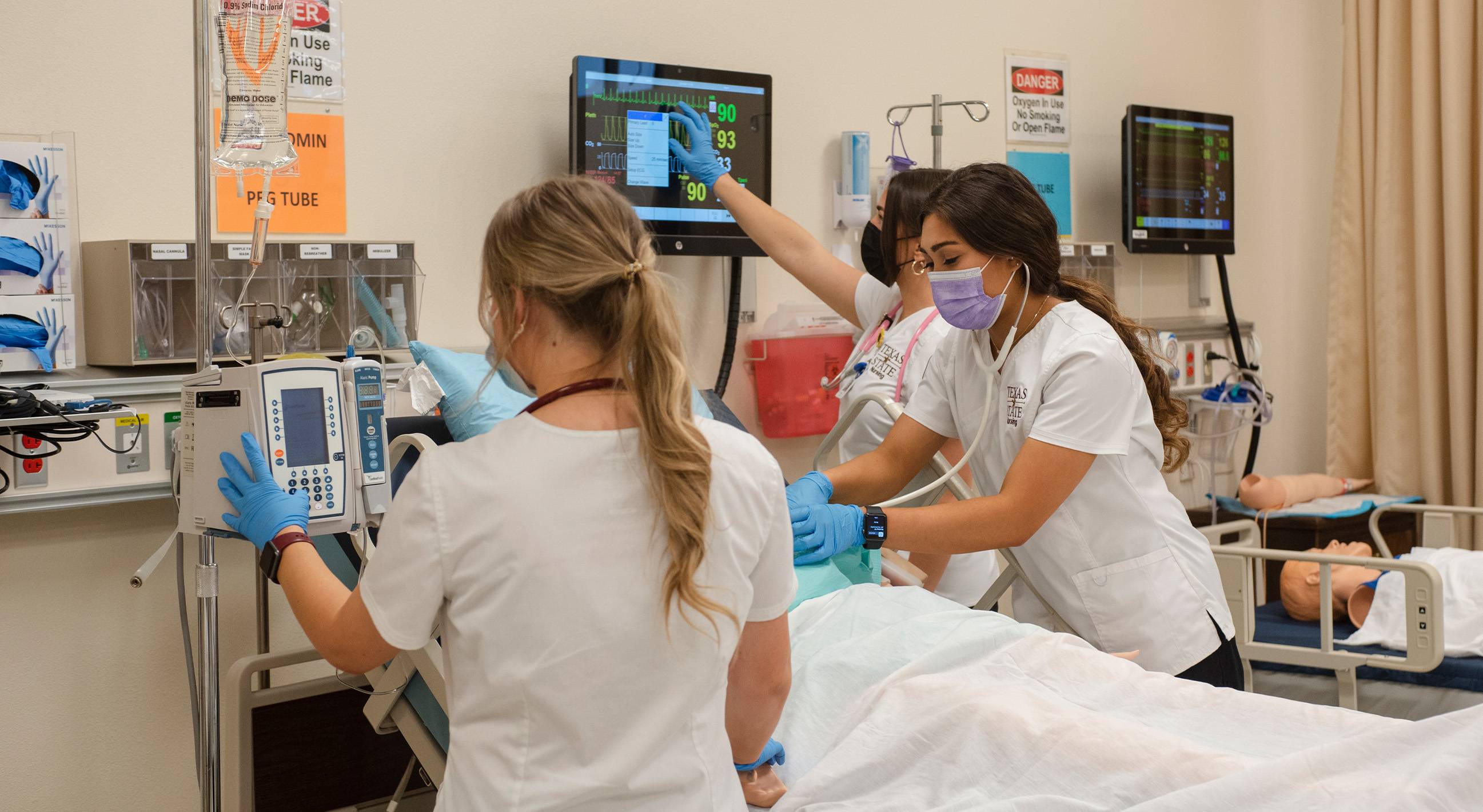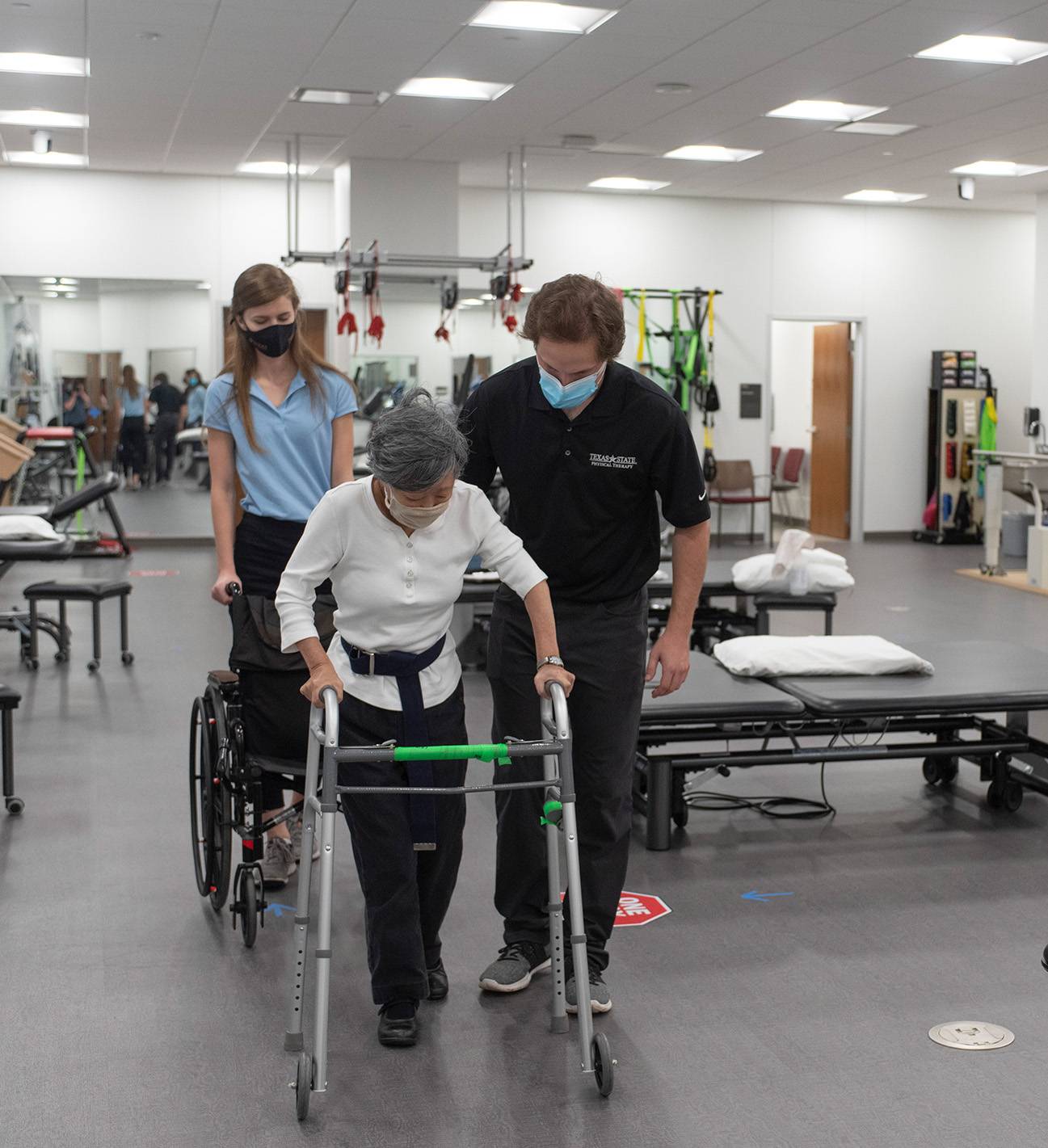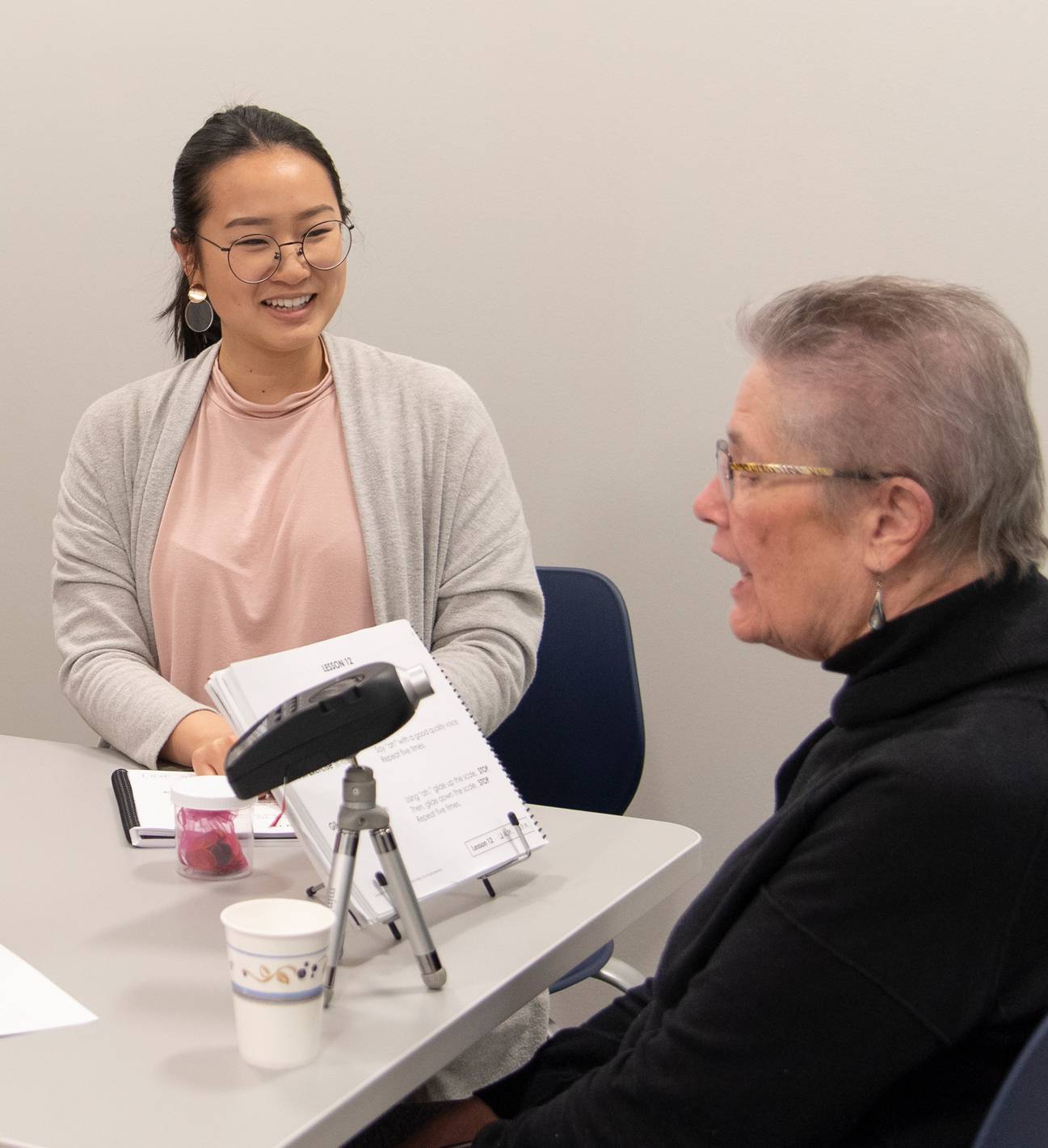
Thousands have trained for careers in demand now more than ever
By Brian Hudgins
Fifty years ago, the Texas State University College of Health Professions started with three staff members, an annual budget of $30,000, and an enrollment of 24 students. Since 1972, the college has provided foundational knowledge for thousands of Bobcats who have earned degrees in clinical laboratory science, communication disorders, health administration, health information management, nursing, physical therapy, radiation therapy, and respiratory care.
Texas State began offering classes in Williamson County starting in 1996. In 2003 the Avery family donated 101 acres in northeast Round Rock and the Avery Building opened in 2005. In 2010 St. David’s School of Nursing admitted the first class of junior nursing majors.
With the opening of Willow Hall in 2018, three more programs — Communication Disorders, Physical Therapy, and Respiratory Care — found a new home. Radiation Therapy and Health Information Management moved to campus in time for fall semester 2021.
In the last six years, enrollment in the College of Health Professions has increased by 7.4% in both undergraduate and graduate programs. Enrollment in these accreditation-based programs is strictly regulated to meet specific student-faculty ratios, limiting the speed of growth. Currently, there are 17 degrees — both undergraduate and graduate — offered through the College of Health Professions.

As the specific degrees and credentials for a career in healthcare have evolved, the college has strived to mirror professional expectations. “One case in point is physical therapy,” says Dr. Ruth B. Welborn, dean of the college. “That went from a bachelor’s program. Then to be credentialed you needed a master’s degree. Now you need a doctor of physical therapy degree (DPT). That is the evolving nature of healthcare.
“The umbrella of degrees offered provides healthcare to the increasing population of Texas and beyond. It is no surprise that jobs in healthcare are booming. The U.S. Labor Department projects that employment in healthcare will grow 15% — including roughly 2.4 million new jobs by 2029. Since 2019, hiring for healthcare positions has increased more than 34%.
“With medical (clinical) laboratory science, students rarely hear about our college major or profession as much in junior high and high schools,” says Dr. Rodney E. Rohde, Regents’ Professor and Chair, Clinical Laboratory Science (CLS). “Two-thirds of all medical decisions are based on those tests, and we conduct approximately 13 billion laboratory tests annually.” Enrollment in CLS grew steadily from 2010 to 2020, going from a combined 25 undergrads to 40 students in 2019. CLS typically provides 20 new medical laboratory professionals each year directly to the needs of the U.S. healthcare system.
Managing Complex Schedules
The School of Health Administration offers bachelor’s and master’s degrees that prepare graduates for entry-level and mid-career positions. Whatever the job goal, Texas State helps graduates transition from the education culture to the professional healthcare administrator level by connecting with professionals through organizations such as the American College of Healthcare Executives.
The bachelor of science in health sciences (B.S.H.S.) degree functions as both a generalist degree in healthcare and preparation for students moving to health science-based graduate programs. “The B.S.H.S. offers great excitement,” says Dr. C. Scott Kruse, professor and program director. “It has only existed since fall 2019, but since then it has experienced exponential growth. We expect it to plateau in the next two years, graduating around 375 students per year thereafter.” The university also offers a graduate-level certificate in long-term care administration for students who want to become nursing facility administrators.
Begun in 1972, the Department of Respiratory Care now boasts the largest bachelor’s degree program in the country. That growth can easily be charted by Dr. Gregg Marshall, chair and program director of the bachelor of science in respiratory care and director of Ascension Seton Williamson Sleep Center at the Round Rock Campus. Out of the nine faculty members in the program, all but one graduated from Texas State.
New Master's in Nursing
As Health Professions begins its next decade, St. David’s School of Nursing — which had its first graduates in 2012 — has moved forward with three master's programs: family nurse practitioner (2013), nursing leadership and administration (2017), and psychiatric and mental health nurse practitioner (2019).
The next goal is establishing a doctorate of nursing practice program (DNP). “The push is getting stronger for a DNP program and that is something we have always planned on doing,” says Dr. Marla Erbin-Roesemann, professor and director, St. David’s School of Nursing.
Recently, graduates in the bachelor of science in nursing have posted a 100% pass rate on the National Council of State Boards of Nursing Licensure Exam (NCLEX-RN ®), according to Texas Board of Nursing statistics from 2016 to 2020. “In terms of outcomes, we have very strong graduates and well-represented programs,” Erbin-Roesemann says.
The Department of Communication Disorders has evolved from its original mission of training speech-language pathologists for schools to providing personnel for hospitals, rehab clinics, and many other facilities. Today the department operates speech-language-hearing clinics at the San Marcos and Round Rock Campuses. The clinics provide therapy for patients from infants to adults.
The university's Radiation Therapy Program is the only baccalaureate degree program in the state that offers a complete curriculum guiding the student’s education from freshman year to graduation.
Students learn using the virtual environment for radiation therapy (VERT) program in addition to getting hands-on instruction at local clinics. Lauren Stevenson (B.S. ’20) is a registered radiation therapist at Oncology Consultants in Houston. She credits the VERT technology for successfully linking her clinical experience and textbook knowledge. “Every scenario is different. The technology helped me a lot with troubleshooting,” Stevenson says. “I couldn’t ask for a better transition after college.”
The Department of Physical Therapy continues to grow and benefit the community. The Physical Therapy Clinic includes faculty expertise and resources devoted to manual therapy, neurology, care for older adults, orthopedics, sports medicine, and wound care. Students have also started a pro bono clinic. That combination of faculty instruction and self-motivation has helped propel graduates to a 98% first-time pass rate on the licensure exam.

Improved Patient Outcomes
The Department of Health Information Management (HIM) strives to improve healthcare delivery and patient outcomes by acquiring, protecting, analyzing, and delivering medical information required for quality care of patients and populations. HIM draws on skills from computer science, business, information systems, and healthcare to prepare students with the knowledge and skills necessary to transform digital healthcare data into meaningful information vital for clinicians, researchers, and administrators.
“Graduates from our HIM programs improve healthcare every day by helping providers make informed clinical decisions and improving patient outcomes through the use of information and technology,” says Dr. David Gibbs, associate professor and HIM chair. Established in 1976, HIM has expanded in recent years with undergraduate and graduate programs that are completely online with courses and concentrations in data analytics, health informatics, and healthcare information security.
Within all areas of the College of Health Professions, Welborn says maintaining both the on- and off-campus clinic resources for students is challenging, especially during the pandemic. “We maintain 1,500 affiliate agreements with hospitals and clinics,” she says. “We’ve had some challenges as we had some facilities close for clinicals. It was a huge undertaking by clinical educators and faculty members to secure clinical and internship experiences to meet accreditation standards.”
The College of Health Professions is responding to the increased need to prepare healthcare professionals to provide healthcare to populations in Texas and beyond. ★